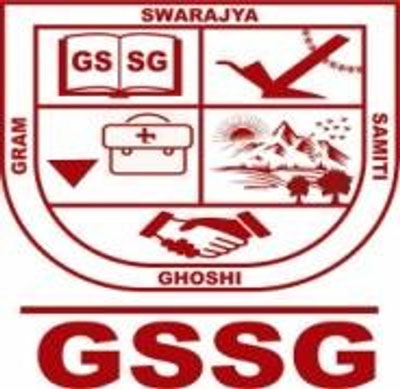|
CURRENT PROJECTS
Project name
|
Donor
|
Location
|
Outreach
|
Objective
|
Achievement
|
|
Raising Quality of Life Mahadalits/Musahar s community in 12 villages of Modanganj Block under Jehanabad District-Bihar (India)
|
Andheri Hilfe, e.V Germany
|
Modanganj Block under Jehanabad District- Bihar (India)
|
12 villages of Modanganj block of Jehanabad district
|
- To ensure quality education to the drop-out / out of the school children /child labour of Mahadalit/Musahar communities so that they become able to join formal schools and to check the child rights violations and ensure child protection.
- To help and support the children in their needs.
- To prevent the child marriage, child labour, child trafficking and child abuse .
- To ensure child rights violation does not take place in their villages.
- To organize the village women in SHGs so that they can promote self- help and raise their voice for reaping he benefits of Govt. Programs and Schemes.
- To develop vocational and life skills among women/ adolescents girls to secure gainful income through self-enterprises and self- employment.
- To improve the health, nutrition and sanitation behavior status of the Mahadalit community to reduce their disease burden and expenditure.
- To make aware of Mahadalit community on govt welfare schemes and supports them to link with govt welfare scheme.
- To develop vocational and life skills among women /adolescents girl secure gain full income through self-enterprises and self-employment.
|
- Baseline survey conducted of 1233 HH.
- A total 2185 women and children have been benefitted from Govt. AWC, ANM and PHC.
- Established two community education centre and 60 out of school children from Mahadalit family were enrolled.
- Established one skill development training center and 30 women
/adolescent’s girls were enrolled and taking skill training.
- Child protection committee had been formed in 12 villages.
- 12 SHG group formed (One Group in each villages).
- 94 people were got benefited GOVT welfare schemes. ( Ayushman Card , E shram Card, Ration card , MANREGA Job Card , Sukanya Samridhi Yojna,Janani Bal Surakchha Yojna etc.)
|
|
Supporting Local Authorities for accountable, responsive and transparent systems for solid waste management.
|
Aga Khan foundation- U.K
|
Three ULB,s under Patna District a.Danapur Nizamat NP
b.Phulwarishari f NP c.Khagaul NP
|
Total -48 wards of the Three ULB (Danapur- 15, Phulwarishari f -15,
Khagaul
-18)
|
- Build the capacity of three ULBs (the local authorities) in decentralised governance and strengthen their technical expertise for effective SWM.
- Demonstrate an effective and financially sustainable model for decentralised SWM that can be replicated and scaled up by other local authorities.
3.Promote citizen’s engagement in planning and public monitoring of solid waste management to improve transparency accountability and responsive of ULBs
|
- Established of MRF centre -2
- Mini segregation Centre-1
- Citizen leader identified:4300
- Citizen leader Trained- 3127
- Home composting: 3484
- Temple composting :33
- Group composting/R WA: 12
- Bio-composter installed :2
- Drum composter installed-6
- Insured Source Segregation of solid waste :77
%
- Insured Door to door collection solid waste :
100 %
|
|
Direct to consumer
Approaches to fertility
awareness and reproductive
health information for adolescents –“A Game of Choice not Chance”
|
Population
council
consulting
services Private LTD.
|
Phulwarisharif Nagar
Parishad and
Six ward of Patna Municipal corporation.
|
a. 28 wards
of Phulwarisharif nagar parihad and 6 ward of Patna Municipal corporation.
|
- To assess adolescents women’s perceptions around family planning and contraception reproductive health, menstrual hygiene ,sex and marriage, relationships, educational attainment ,life aspiration, and well being in urban India.
- To identify barriers that adolescent women face to accessing reproductive health services, counseling, menstrual hygiene products and other social support.
- To gauge adolescent women’s engagement ,attitudes and experiences with the Game of
Choice serious game.
|
a. House listing of
|
|
5542 households were
|
|
done. Out of which in 896 Households, the adolescents of the age group of 15-19 years were found. Out of 896 selected
households, a
|
|
baseline survey was
|
|
conducted with 700
|
|
adolescents exercising
|
|
the Mobile App based
|
|
Interview schedule.
|
|
Out of 700
|
|
Interviewed
|
|
adolescents, a total
|
|
325 adolescents were
|
|
randomly shortlisted
|
|
and then after a
|
|
Consent Form was
|
|
filled with the
|
|
selected adolescents
|
|
and their parents. The
|
|
list of the shortlisted
|
|
adolescents’ girls were given a chance to move ahead for
playing the game “GO
Nisha GO”.
|
|
Bihar COVID Vaccination Program,
|
Azim Premji Foundation
,
|
Modanganj Block Jehanabad District, Bihar
|
total 55 Revenue Villages of 8 Gram Panchayats
of Modanganj Block
|
a.To make people aware about COVID 19 – its spread, dimensions and lethality.
b.To sensitize people about prevention measures and COVID-Protocol.
c.To motivate and convince people for taking both the doses of COVID vaccines clarifying their doubts and misconceptions
|
Out of the targeted 69966 people, we achieved to vaccinate the first dose to 52902 (75.61%) out of
which we achieved to vaccinate the second dose to 36947 ( 72.89%) people
|
|
Enhancing livelihood of slum dwellers, women and adolescent girls through skill enhancement in Urban Patna Slum, Bihar supported by Melania, Netherlands.
|
Melania, Netherlands
|
Slums of Patna urban Area
|
5 Slums of Danapur nagar parishad
,Patna
|
The project was aimed at the skill enhancement of women and adolescent girls through vocational training who are rag pickers and working as maid servants in the urban slums of Patna
|
After the successful completion of
vocational training program of 60 women and girls for 6 months, they have imparted training to another 180 women and girls residing in their slum areas. So, 180 women
|
